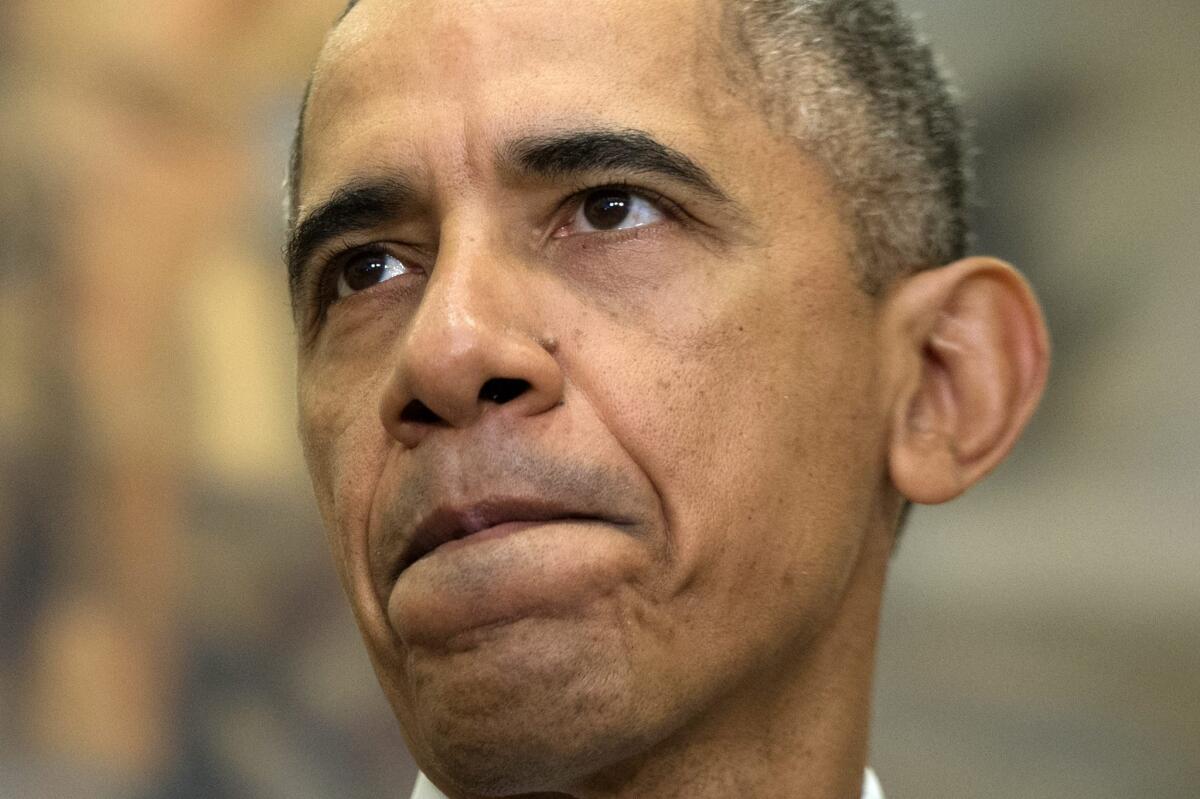Editorial: Obama’s ‘no’ to Keystone XL was the right call

President Barack Obama delivers a statement on the Keystone XL pipeline in the Roosevelt Room of the White House, in Washington on November 6.
The Keystone XL pipeline project promised to bring thousands of construction jobs to America, but the long-term cost of those temporary jobs would have been steep. Not only would a mammoth pipeline from the tar sands of Canada to the refineries of the Gulf Coast have carried 830,000 barrels of toxic crude oil a day through the U.S. heartland, but it would have encouraged a particularly dirty form of oil extraction that could exacerbate climate change. President Obama’s decision Friday to deny a permit for the pipeline, after a years-long slog of multiple studies and heated political battles, was the right one.
Supporters of the pipeline have argued that the oil would be produced even if the pipeline weren’t built — instead, it would just be shipped by a more expensive method, probably train. The implication is that the main benefit of the pipeline would be to make the price of Canadian oil cheaper and more competitive with the oil sold by Venezuela and Saudi Arabia.
Granted, shipping the oil by train has its own dangers. But while tanker-car derailments typically cause more property damage, pipeline spills generally cause more damage to the environment. The U.S. Environmental Protection Agency has raised concerns for more than a year that Keystone spills could foul groundwater and wilderness areas. And TransCanada, the company that proposed building the pipeline, has a particularly poor record when it comes to pipeline construction.
And now there is good reason to doubt whether the oil will be extracted, with or without the pipeline. Low oil prices stopped Royal Dutch Shell PLC’s plans for drilling in Arctic seas, and because the production cost of the tar sands oil would rise without the pipeline, it’s possible the oil won’t be worth extracting, or that less of it will be produced. At times over the last year, oil prices have dipped to the point at which the oil production wouldn’t be worthwhile to the company even with the pipeline.
If the United States didn’t get to produce or use the oil, what would the benefit have been? There would have been a considerable number of jobs involved in building the pipeline, but a State Department study found that the project would have created only 35 permanent positions. Meanwhile, the pipeline itself and its dangers would have been with the country for years.
Whether or not the president’s decision reduces Canadian tar sands extraction, it takes an important stand for the safety and quality of drinking water, the health of wilderness areas and the future of the world’s climate. An ever-more-desperate push to produce fossil fuels to burn will not get the world where it needs to be on its biggest environmental threat.
Follow the Opinion section on Twitter @latimesopinion and Facebook
More to Read
A cure for the common opinion
Get thought-provoking perspectives with our weekly newsletter.
You may occasionally receive promotional content from the Los Angeles Times.










